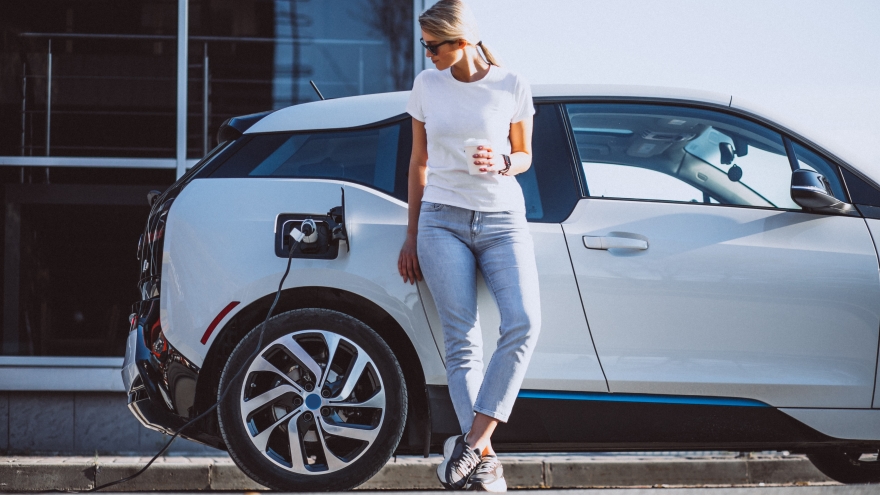EV consideration sags for first time in J.D. Power study

By subscribing, you agree to receive communications from Auto Remarketing and our partners in accordance with our Privacy Policy. We may share your information with select partners and sponsors who may contact you about their products and services. You may unsubscribe at any time.
The J.D. Power 2024 U.S. Electric Vehicle Consideration (EVC) Study released on Thursday confirmed what many dealerships probably suspected.
Consumer demand for electric vehicles (EVs) is losing its juice.
For the first time since the study’s inception in 2021, J.D. Power said new-vehicle buyer consideration has dropped from the previous year. This year’s study revealed that 24% of shoppers say they are “very likely” to consider purchasing an EV, down from 26% a year ago, while the percentage of shoppers who say they are “overall likely” to consider purchasing an EV decreases to 58% from 61% in 2023.
“As the industry inches toward mass consumer adoption, the main roadblocks to getting consumers behind the wheel of an EV are the continued shortage of affordable vehicles, charging concerns and a lack of knowledge regarding the EV ownership proposition, including incentives,” said Stewart Stropp, executive director of EV intelligence at J.D. Power.
“As understanding of EV incentives rises, so does the likelihood of consideration,” Stropp continued in a news release. “However, approximately 40% of shoppers say they do not have a solid understanding of such incentives. Prioritizing initiatives and efforts to educate consumers about the EV proposition — including available incentives and how they work — is vital to accelerating market growth.”
Stropp indicated that other factors contributing to waning EV demand include:
Subscribe to Auto Remarketing to stay informed and stay ahead.
By subscribing, you agree to receive communications from Auto Remarketing and our partners in accordance with our Privacy Policy. We may share your information with select partners and sponsors who may contact you about their products and services. You may unsubscribe at any time.
—Lower year-over-year fuel prices
—Stubborn inflation and high interest rates
—Underwhelming growth in model availability.
“In previous years, the number of viable EVs that met shoppers’ needs increased substantially year over year,” Stropp said. “This year, it’s been more incremental. Several automakers have deferred EV launch and production plans and have shifted more focus toward hybrids and plug-in hybrids, so we’re seeing a lot of shoppers who still haven’t found an EV that checks all the boxes.”
Four other key findings from the 2024 study included:
—EV consideration drops among Gen Z and Gen Y shoppers: The lack of affordable EV models is affecting the two youngest buyer cohorts, Gen Z and Gen Y, with “very likely” consideration down 2 and 5 percentage points year over year, respectively.
Still, J.D. Power indicated 24% of Gen Z and 32% of Gen Y shoppers say they are “very likely” to consider an EV, the two highest ratios among all the generational cohorts.
—Top five reasons for EV rejection mostly related to charging: Among shoppers who say they are “somewhat unlikely” or “very unlikely” to consider an EV, J.D. Power said 52% cite a lack of charging station availability as a reason for rejection — the highest proportion in the study.
Researchers noted this figure has increased 3 percentage points year-over-year, a sign that concerns about public charging infrastructure are only getting worse.
Other reasons for rejection include purchase price, limited driving distance per charge, time required to charge and inability to charge at home or work, according to J.D. Power.
—Drivers with longer commutes less inclined to consider EVs: J.D. Power said previous studies noted that owners who drove more miles each day were more likely to consider an EV.
Now, with fuel prices coming down and charging anxiety on the rise, researchers discovered that trend has reversed.
Among shoppers whose daily commute is 46-60 minutes each way, J.D. Power found only 24% said they are “very likely” to consider an EV — down 13 percentage points from 2023.
—Role of pending vehicle influences consideration: Among shoppers who are looking to add another vehicle to their household, J.D. Power indicated 68% said they are “overall likely” to consider an EV.
Conversely, among those who will be relying solely on one vehicle for transportation, researchers determined only 47% said they are “overall likely” to consider an EV.
Without a second vehicle, J.D. Power acknowledged shoppers tend to be more critical of the logistics related to EV ownership.
The U.S. Electric Vehicle Consideration (EVC) Study is focused on gauging fully electric or battery electric vehicle shopper consideration, simply referred to as EVs in the study.
Study content included overall EV consideration by geography, demographics, vehicle experience and use, lifestyle and psychographics.
It also includes model-level consideration details such as “why buy” findings and analysis of reasons for EV rejection.
This year’s study measured responses from 8,179 consumers and was fielded from January through April.


